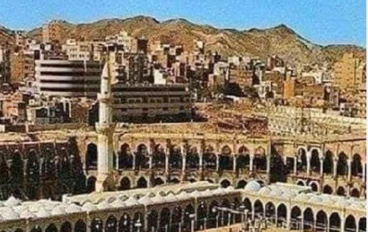
The impact of the prophetic biography
The Impact of the Prophet Muhammad's Biography on Muslims:
The life of the Prophet Muhammad (peace be upon him), known as "Seerah" in Arabic, has profound significance for Muslims around the world. His biography serves not only as a historical record but also as a model for personal conduct, community cohesion, and spiritual growth.
First, the Prophet’s exemplary character shapes the moral fabric of Muslims. His honesty, kindness, and justice in both private and public life set the standard for ethical behavior. Muslims learn the meaning of forgiveness, compassion, and fairness from their interactions with peers, family, and even adversaries. For example, his kindness to all people, including animals, exemplifies Islam’s emphasis on universal kindness. For example, the Prophet’s teachings on compassion and mercy are foundational to Islamic morality. His forgiveness of the people of Taif after he had been rejected and hurt exemplifies his compassion and commitment to forgiveness. This incident provides a profound lesson for Muslims in responding to adversity with patience and forgiveness.
Second, the Sira is the foundation of Islamic jurisprudence and governance. Under the leadership of the Prophet in Medina, he established a just society based on mutual respect and adherence to divine guidance, which remains a model for governance in Muslim-majority countries. His government balanced spiritual leadership with practical governance, addressing legal, economic, and social welfare issues. The Prophet's leadership in establishing the first Islamic state in Medina provided a model of governance based on justice and consultation (Shura). His Constitution of Medina, which guarantees rights and responsibilities to all citizens regardless of faith or origin, is a foundational document for the principles of pluralism and inclusion in Islamic governance.
Third, the Prophet’s teachings on spirituality and worship form the core of Islamic ritual and religious practice. His nighttime prayers, fasting during Ramadan, and the pilgrimage to Mecca all emphasize the importance of personal piety and spiritual discipline. Muslims emulate his devotion to worship and strive to deepen their connection with God through similar acts of devotion..
Moreover, the Seerah fosters a sense of community and unity among Muslims. The Prophet's emphasis on brotherhood transcended tribal and racial divides, establishing a cohesive Muslim ummah (community). His farewell sermon highlighted equality and solidarity among believers, laying the foundation for social justice and diversity within Islamic societies.
Furthermore, the Prophet's strategic acumen and resilience in the face of adversity inspire Muslims facing contemporary challenges. His perseverance during periods of persecution and hardship offers solace and courage to individuals navigating personal or collective trials. His unwavering faith in divine wisdom and guidance serves as a source of strength and hope.
In conclusion, the Seerah of Prophet Muhammad, peace be upon him, resonates deeply with Muslims worldwide. It provides a blueprint for moral conduct, governance principles, spiritual growth, community cohesion, and resilience in the face of adversity. By studying and embodying his life and teachings, Muslims strive to emulate his example and uphold the values he championed, thereby enriching both individual lives and the broader Muslim community.
This article highlights the enduring impact of the Prophet's biography on Muslims, illustrating how his life serves as a timeless source of guidance and inspiration in all aspects of their life.

































